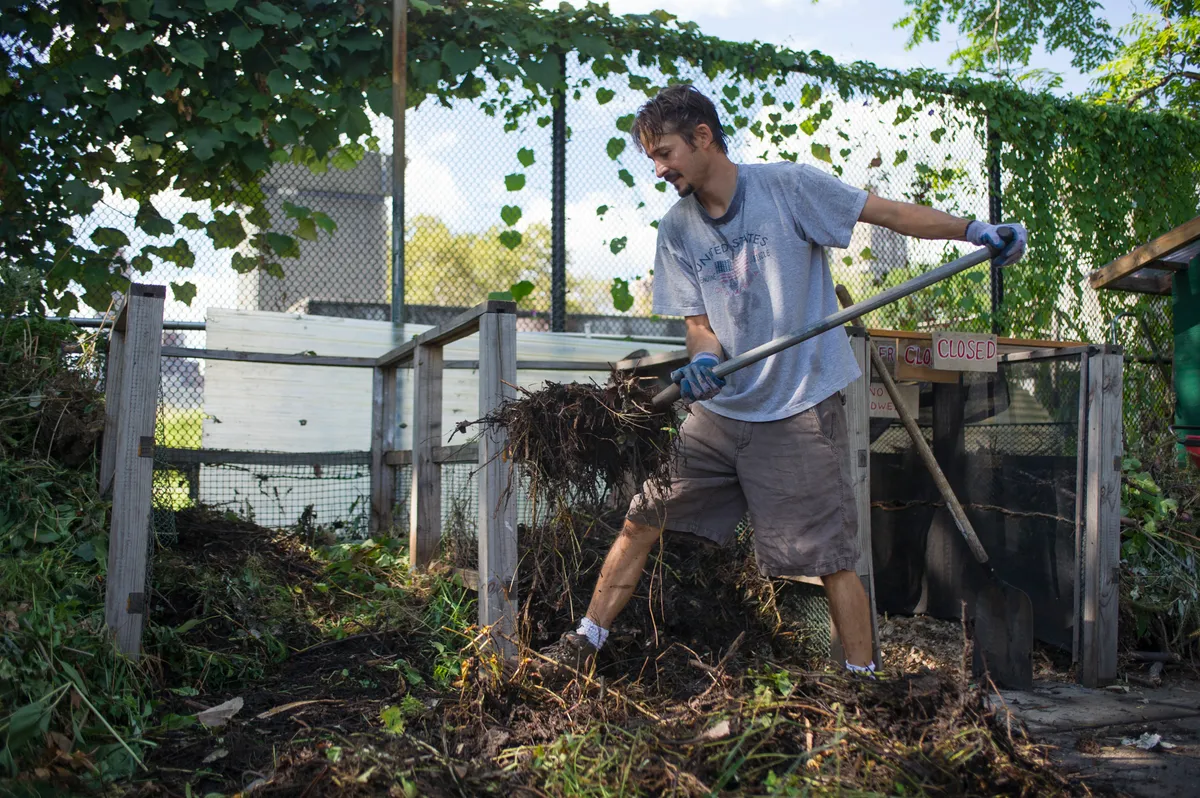‘Biodegradable’ and ‘compostable’ are words we are seeing emblazoned on plastics more and more. And what those words actually mean, should be simple to understand. But are they? Are plastics dubbed biodegradable and compostable suitable for your own compost, or only commercial composting? And where is commercial composting actually happening? 'Compostable' and 'biodegradable' tend to throw up more questions than answers.
Step forward Danielle Purkiss, an architect by trade. She, along with Professor Mark Miodownik from University College London's Plastic Waste Innovation Hub, conceived of The Big Compost Experiment, which was launched last month. It’s one of a series of initiatives being undertaken by the hub that aims to gather data on the truth behind plastic recycling in the UK.
The hub has been working since March this year and Danielle joined it in July. This particular citizen science experiment – an experiment undertaken by UK citizens like you or me – aims to try to answer gaps in knowledge on biodegradables and how they breakdown in different environments.
There have been some studies into biodegradable plastics and how long they can take to decompose, but Danielle believes this will be the first time research is conducted on plastics in home composting environments.

"The way a biodegradable plastic is labelled for disposal is complicated. In the UK there aren’t currently any home compostable standards,” explains Danielle. There is the European standard EN 13432, which refers to industrial composting processes, but, as Danielle points out, the breakdown of plastics takes place only under 'a very highly controlled set of environments’.
Ultimately, any plastic claiming it can be home composted raises a few issues. One of the main being that how you actually do your home composting varies considerably from house to house. And, according to Danielle, in the few weeks since the experiment has gone live, it has quickly revealed just how varied people’s home compost systems really are. Read below for Danielle's simple breakdown of The Great Compost Experiment and head to the website to take part.
So what is this experiment testing exactly?
Plastics that are deemed ‘compostable’, ‘home biodegradable’, ‘home compostable’, ‘suitable for home composting’ and ‘TUV OK Compost ‘HOME’ label’, so we can get to the point where manufacturers use words like the above and we know what they actually mean.
How do people get involved?
Head to our website. There are two elements of the experiment. A simple online survey, which anyone can fill out, about whether they compost or not. The second part is for the keen and committed composters. Ultimately you put some of these plastics into your home compost and take pictures. Then later you let us know how well these have broken down.
What do you hope to produce from the experiment?
A set of guidelines that we can work towards for identifying what is and isn’t home compostable. But more generally the experiment will give us a whole range of data on whether home composting is actually a feasible or reasonable strategy for biodegradable plastics.
So there’s a chance that it won’t be?
Yes, and that will mean we need to look properly the biodegradable plastics infrastructure in this country.
What sort of home compost varieties have you discovered?
Everybody’s composting habits are very different. There’s the size of compost heaps - some people are composting on a huge scale at the bottom of their allotments, or fields. Some people want low maintenance composts, others accelerate the process by turning it. Some have tumble composters, which speeds up the process even more. Then there’s rainfall and temperature that also has an impact on composting too, so where you are in the UK has an impact. Some people have an indoor wormery, some compost in a very small, contained space.
Home composters may just not have the space for lots of plastics
I worked out that if I composted a couple of compostable plastic coffee pods over the course of six months, they just wouldn’t fit into my wormery. There’s barely the space for worms, let alone the pods.
Have you had lots of people getting involved already?
We are really pleased. It's been open around a month but we have already had 500 people sign up to the compost experiments and have had even more take part in the online survey.
Do you think we should all be composting?
There are obvious barriers to people composting – a lack of space, for example. But I think everyone should at least learn composting or be involved somehow in the composting process. It’s helping to reduce the production of methane from food waste going to landfill. It may help to shift people’s behaviour too, so people try to cook more food from the things they see as waste.
And it’s good to connect with the soil too!
Yes, you get to learn a lot by engaging with this as a process. You can see it happening and you can engage with the natural world. Modern lifestyles mean we are mostly divorced from the natural processes of things – even the weather and climate, with air conditioning. So it’s a good way of raising awareness of those processes too.
